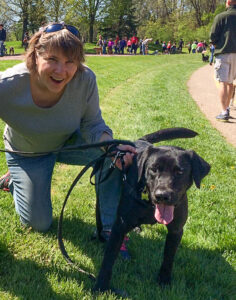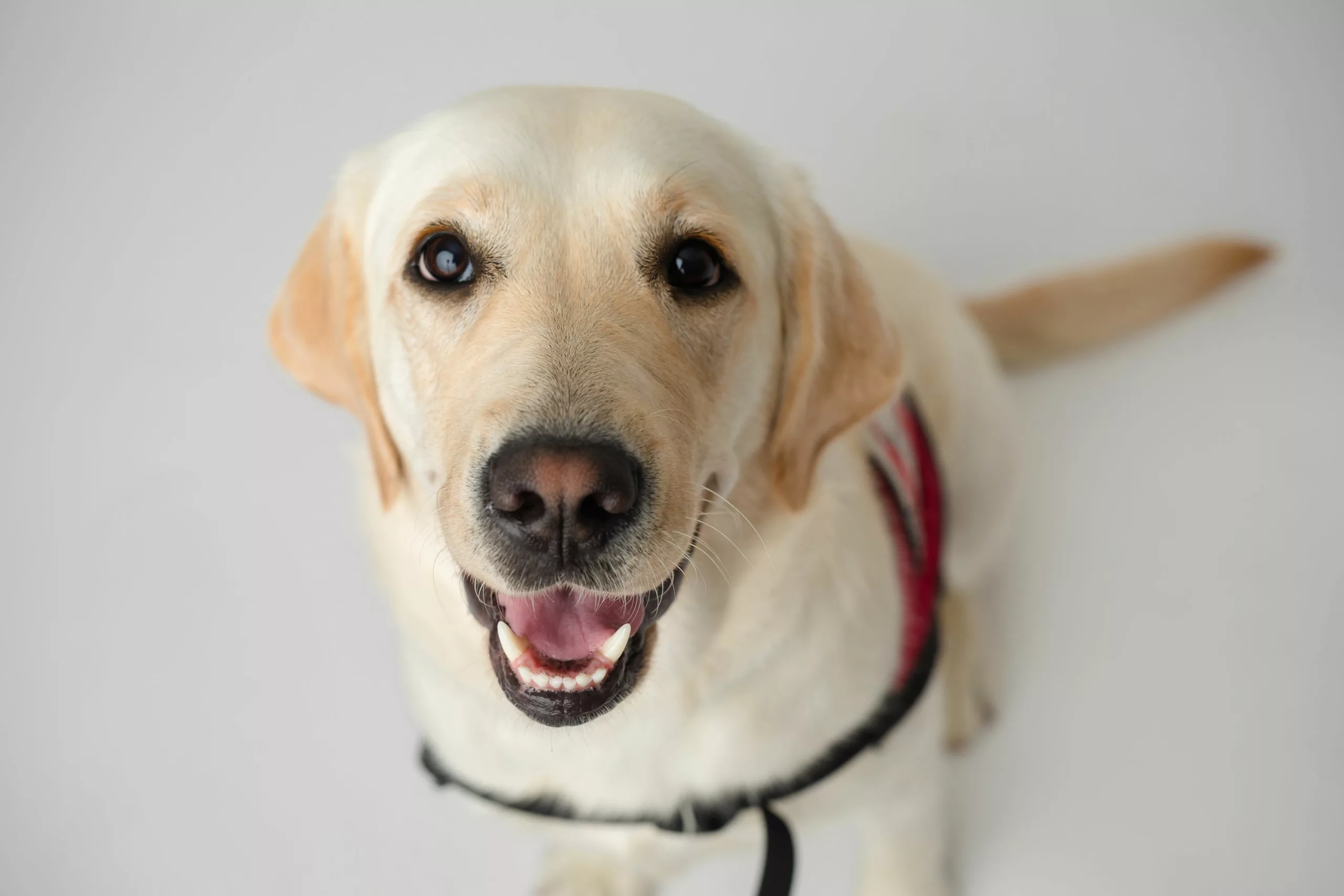Anyone who has lost a pet knows that it can feel devastating. The compounding aspect of that animal being one that serves to provide independence and other necessary life skills can be that much worse.

For Can Do Canine graduates who experience the death or retirement of an assistance dog, volunteer Karen Kodzik is there to help. Karen began her relationship with Can Do Canines about eight years ago, hosting dogs and helping at various events.
“As my schedule shifted, I could do fostering less and less,” explains Karen. “So I reached out to, at that time, the person that coordinated client services and said, ‘I still would love to volunteer. I basically said to them, ‘Where’s your gap? Where is there a need? Professionally, I’m a counselor and I’d love to be able to support clients going through grief and loss.’”
With over 20 years as a master counselor for career counseling and executive coaching, Karen believes the pain of losing a job and losing a dog share similarities. “If anybody you’ve ever known has lost a job or is miserable in a job, there is a lot of grief and loss in that. And so, it’s very much a transferable experience.”
For the past six years, Karen has offered her services to clients who have lost a dog, walking with them on their journey. Willing to engage in up to three free 30-minute phone sessions, Karen says, “It’s humbling that these people trust and make themselves vulnerable to a stranger, to a volunteer, and allow me a glimpse into their moment of time to offer support and counsel and sometimes just a compassionate ear.”
For anyone who must deal with the loss of a pet, Karen stresses, “I can’t restate enough that people who are going through grief and loss give themselves grace and give themselves permission to grieve, knowing that grief has its own timeline, and to be gentle with themselves and reach out to lifelines.”
Fortunately for Can Do Canine graduates, Karen is willing to be a lifeline. She now has a Can Do Canines career-changed dog of her own, 9-year-old Ben, but realizes the additional anguish that saying “goodbye” to an assistance dog brings.
“The place that animals hold in our lives, in our hearts—especially for people who need them to be independent and supported—is unparalleled. The significance and weight of the grief people experience … shouldn’t be downplayed. It is real. It is heavy. It is painful, because not only are they an animal, they are your companion. They are your point of support. They are your path to independence, and life will be changed when that dog passes. And so to have a place to come and start that journey forward, I’m happy and honored to be able to offer that.”

 Building Our Capacity to Serve
Building Our Capacity to Serve




